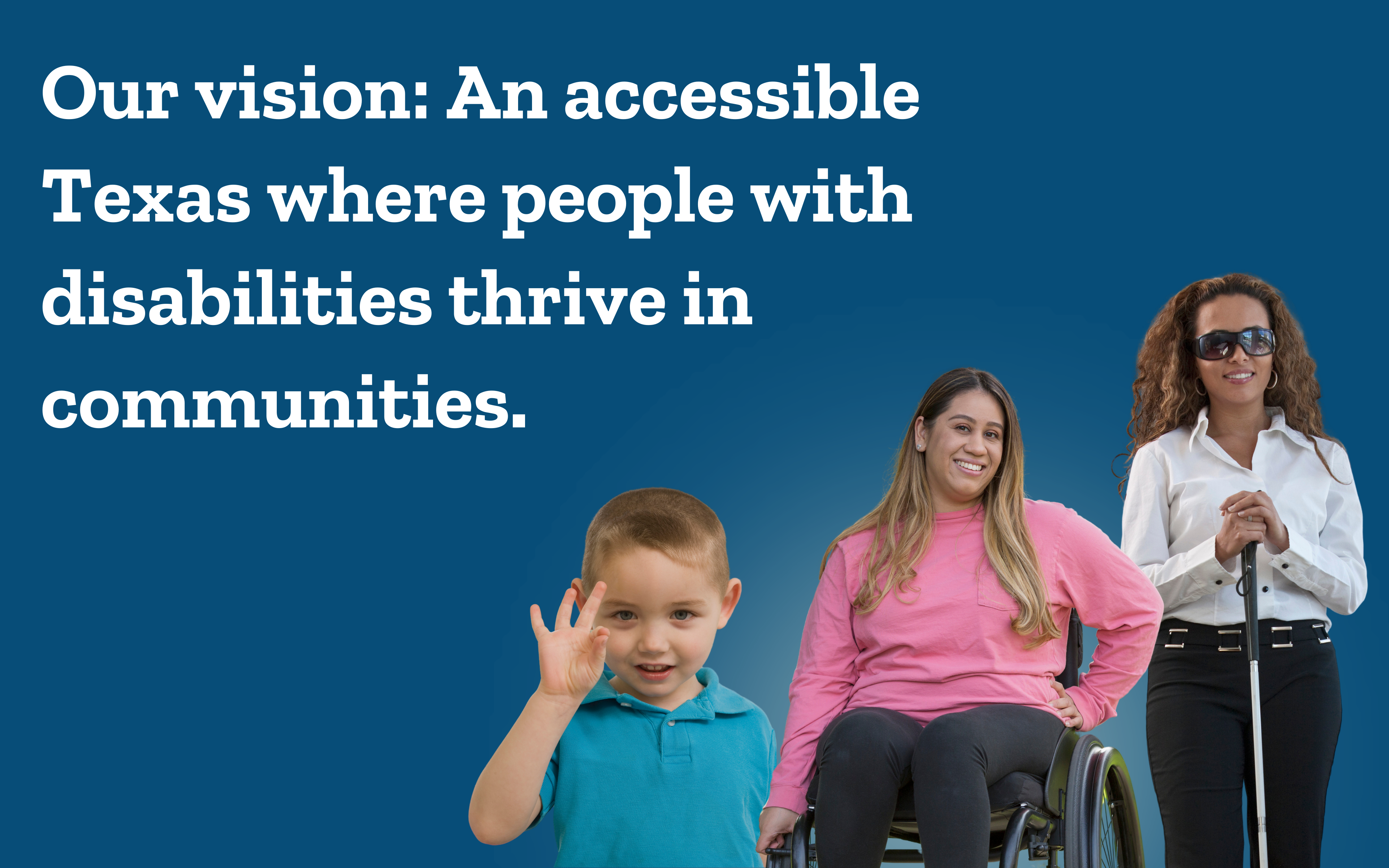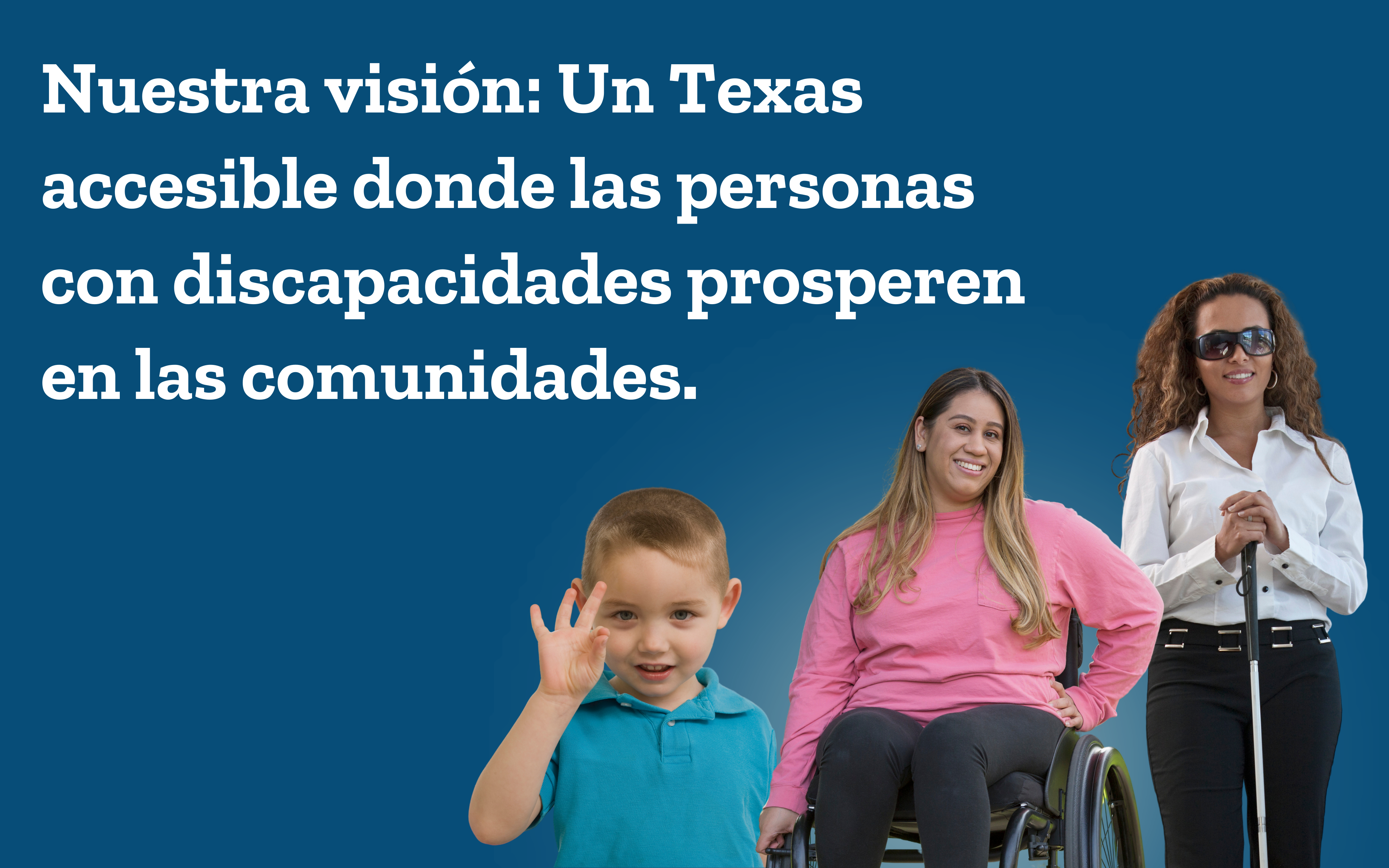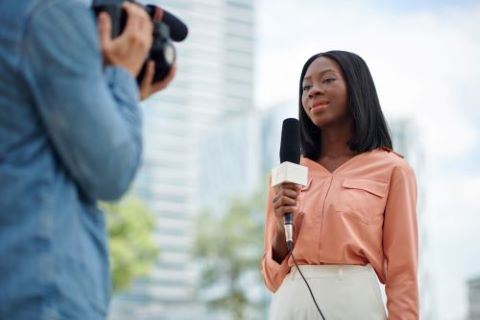



Staff Blog
If you’ve been anywhere near a TV, radio, or even your own mailbox lately, you probably know we are in the midst of an election season. But are you ready to vote? Below are some important dates and other things to keep in mind so you can participate in the election if you are eligible.
Key dates:
- Deadline to register to vote: October 7
- Early voting starts: October 21
- Deadline to apply for a ballot by mail: October 25
- Early voting ends: November 1
- Election Day: November 5
Other things to help you prepare:
- Are you registered to vote? If you aren’t, learn how to get registered.
- If your info has changed since you last voted, update your name and/or address.
- Do you have the right kind of ID to vote? If you don’t have a photo ID, learn how people with disabilities may be able to get an exemption.
- Find out what you’ll be voting on by reviewing your sample ballot before you head to the polls.
Voting resources
Did you know we have voting resources to help eligible voters with disabilities participate in elections? Learn about your voting rights, alternative voting options, how to find a ride to the polls, and more. We also have voting videos in ASL.
Voting help
If you need assistance in registering to vote, if you have questions regarding voting, or if you feel that any of your voting rights have been violated, please contact the Disability Rights Texas Voter Hotline at 1-888-796-VOTE (8683) or e-mail vote@drtx.org.




Staff Blog
Find a Ride Guide
Do you want to vote in the November 2024 election but need a ride to the polls? If you do, our Find a Ride Guide (Excel) may be able to help. The guide was put together by Disability Rights Texas (DRTx) staff and it includes information about different transportation options you can consider this election season. The Find a Ride Guide includes information about:
- public transportation,
- paratransit,
- taxis,
- rideshares,
- Uber and Lyft, and
- more.
For the transportation types listed above, the guide includes things like the names of transportation providers, phone numbers, websites, fares, accessibility options, etc.
The Find a Ride Guide is a spreadsheet. To access the guide, you need to download the file and open it in Microsoft Excel or Google Sheets.
Download the Find a Ride Guide
The Find a Ride Guide is provided as a resource for people with disabilities and others to reference. The information in the guide was current at the time of publication, so you should verify the information with the transportation provider you are considering. DRTx does not provide or arrange rides to polling sites.
Need help?
If you are not able to use the Find a Ride Guide, we may be able to help. Fill out a Find a Ride Form and DRTx staff will relay the information provided in the guide.
You can also get help finding a ride by calling our Voting Rights Hotline at 1-888-796-VOTE (8683) or by sending an email vote@DRTX.org.




Staff Blog
By Steven Aleman, Education Policy Specialist at DRTx
August in Texas means extremely hot weather and of course, back to school. It also means some changes in how public schools deliver special education services.
The Texas State Board of Education (SBOE) and Texas Education Agency (TEA) have several new rules going into effect in the 2024-25 school year related to students with disabilities.
New SBOE rules impacting students with dyslexia and related disorders include:
- School interventions and services to students with dyslexia are considered special education services and therefore these students should qualify under the Individuals with Disabilities Education Act (IDEA).
- Schools are required to involve school personnel with expertise on dyslexia in the evaluation of a student suspected of dyslexia, and in the planning of services.
- More detailed direction of which school personnel may be considered as having expertise on dyslexia and whether a teaching certificate is required.
New TEA rules related to educating students with disabilities in special education include:
- For students referred and evaluated for special ed services during the summer, the deadline for the ARD (Admission, Review, and Dismissal) committee to have a written IEP (Individual Education Plan) has changed from the first school day of the school year to the 15th.
- The eligibility category of “emotional disturbance” was renamed to “emotional disability.”
- The eligibility category of “learning disability” was revised to clarify that students with dyslexia and related disorders fall within this category.
- A more meaningful definition of what annual goals in an IEP should contain and cover was provided.
- The IEP supplement for students with autism was enhanced by adding new elements for ARD committees to consider and address.
- ARD committees are required to start addressing federal transition planning requirements when a student reaches age 14, rather than at age 16.
For more information about issues happening at schools across the state that may impact your child, see our August 2024 Back to School E-Newsletter. And remember that we have several education rights resources on our website including our comprehensive IDEA manual to help you advocate for your student.




Staff Blog
Disability Rights Texas, alongside The Arc of the United States, The Arc of Texas, and the American Association on Intellectual and Developmental Disabilities, has joined with Fried, Frank, Harris, Shriver & Jacobson LLP to file a “friend-of-the-court” brief in a significant death penalty case before the Texas Court of Criminal Appeals. The brief aims to safeguard individuals with intellectual disability from unconstitutional executions by advocating for the use of scientific criteria over outdated stereotypes in determining intellectual disability.
The brief, which centers on the case of current death row inmate Blaine Milam, emphasizes that accurate identification of intellectual disability is crucial in ensuring justice, particularly in capital cases. The brief also underscores that courts must adhere to clinical standards rather than relying on misconceptions that can lead to unjust outcomes.
The brief seeks to reinforce already-established legal protections,




Staff Blog
We are excited to learn that we have received this year’s National Disability Rights Network (NDRN) Advocacy Award for our work on behalf of voters with disabilities in Texas.
An email from Marlene Sallo, NDRN Executive Director, said:
I am very excited to reach out and let you know that it is my pleasure to inform you that Disability Rights Texas has been awarded the NDRN Advocacy Award for your work on behalf of voters with disabilities in Texas.
Disability Rights Texas has shown extraordinary leadership by investigating the accessibility of county election websites throughout the state and determining that most of the websites were in noncompliance. These efforts led the Department of Justice to initiate its own investigation which supported your findings. Bravo!
I know that you are very proud of the diligent work of DRTx’s voting team, attorneys, and staff and the results of their work: improved access to accessible ballots on behalf of voters who are blind or who have print disabilities and amicus support for lawsuits seeking to improve access to mail-in ballot drop boxes.
DRTx’s persistent and creative approach to voting rights and access has allowed many voters with disabilities to vote privately and independently for the first time. Your efforts are a model for the entire P&A/CAP network.
For these reasons and more, we’re so happy to be able to honor your work this year.




Staff Blog
Thank you for reading our Fiscal Year 2023 Impact Report (PDF) and coming here to learn about other important advocacy work we are doing because of your support. Here are a few more highlights from the past year.
Fighting for justice for Texans with disabilities trapped in jail
For nearly two decades, Texans deemed incompetent to stand trial have suffered prolonged stays in jail, spanning months or even years, while waiting for admission to mental health facilities for competency restoration treatment. Without this treatment, their right to a fair trial remains elusive.
In response to this egregious practice, Disability Rights Texas took action in 2016 by filing a class action lawsuit, Ward v. Young (formerly Ward v. Hellerstedt), on behalf of affected Texans, asserting that this prolonged confinement violates their constitutional right to due process under the 14th Amendment.
Today, their plight continues. Due to lack of staff and space at facilities, close to 2,000 people are languishing in jails, enduring an average wait time of 1.2 years for transfer to mental health facilities. Tragically, during these extended waits, some have suffered irreversible harm, including death, severe medical complications, and physical injuries.
Since the lawsuit’s inception, significant milestones have been achieved, including defeating a motion to dismiss and obtaining class certification. With the parties currently submitting cross motions for summary judgment, DRTx is optimistic that a resolution is within reach.
Helping justice-involved youth stay in school
Anywhere from 65 to 85 percent of students in the juvenile justice system have a disability and may require special services to be successful in school, yet many are not receiving those services. To address this critical issue, Disability Rights Texas formed a partnership with the Harris County Juvenile Probation Department in 2016 to provide educational advocacy services for youth involved in the county’s justice system.
Since the program’s inception, we’ve been able to help nearly 3,000 youth to get the educational services they need. More than 90 percent of the youth we have served have not re-offended.
One major barrier youth face after exiting the system is re-entry into their local public school. That’s why in 2023 we collaborated with multiple agencies and professionals to provide training at area conferences on best practices and legal requirements for school re-entry. To accompany the training, DRTx helped produce “Back on Track,” a short video that explains the issue and includes testimonials from school administrators on the critical role they have in helping youth return to school.
Advocating for the needs of children in foster care
As many as half of the 28,000 plus children in Texas foster care have a disability.
Many of those kids are not getting the medical care, education and other services they need. Also, they are half as likely to be reunited with their family or adopted and are more susceptible than their peers to experience homelessness, incarceration, and dropping out of high school.
In 2023, we provided legal representation to more than 80 children in foster care.
One of our clients was a terminally ill child who was experiencing fraud and medical neglect by his care provider. We ensured he was moved to a safe and caring home for the remainder of his life.
We also helped a client finally qualify for a Medicaid waiver program she had been turned down for multiple times, ensuring that she will be able to remain with her long-term caregiver and receive supports for the rest of her life.
Since forming this specialized team in 2010, DRTx has represented youth in numerous court hearings, special education ARD meetings, treatment team meetings, and more. Because of our innovative approach, we have witnessed children’s lives transform in tangible ways. Caseworkers, lawyers, and judges from around Texas request our involvement in cases due to our innovative approaches and expertise.
Counting the cost of a proposed school voucher bill
In the 2023 Texas legislative session, a proposed bill for school vouchers sparked heated debate. With an already under-funded state public school system, many feared that the bill would be detrimental for children needing special education services, especially those who live in lower income school districts. That’s why our policy staff joined with other advocacy groups in a full-on effort to educate legislators through the regular session and four special sessions about how the bill would negatively impact Texas children with disabilities.
The bill did not pass.
Rounding up a more accessible Houston Rodeo
Sometimes our legal advocacy for one person benefits many others. In 2023 we filed a Department of Justice (DOJ) complaint on behalf of one client because of inaccessibility of the Houston Rodeo. We later learned that the DOJ received additional similar complaints and investigated. The Houston Rodeo has since made their parking, bathrooms, seating and other parts of the event accessible.
Fiscal Year 2023 Impact Report




Staff Blog
If you live in Texas, you know that a disaster can strike at any moment – it’s a question of when, not if. Because disasters and emergencies are a constant threat, it’s important for people with disabilities to be ready so you don’t have to get ready. So how prepared are you? Tell us!
Disability Rights Texas (DRTx) is conducting the 2024 Disaster Resilience Survey of Texans with Disabilities. Your responses will help DRTx understand how prepared Texans with disabilities are and identify the needs in the community.
The survey is for:
- people with disabilities
- people who support people with disabilities
- other people with a connection to the disability community
The survey asks what you’re worried about, how prepared you are, what supplies you keep on hand, and more. With the survey results, DRTx could create new resources, develop education and training for the community, guide advocacy and policy initiatives, and educate emergency managers about the needs of the disability community.
American Sign Language (ASL): If you use ASL, watch this ASL video about the survey or read the information below.
ASL users can complete the survey via video phone call. To complete the survey, call DRTx at one of the video phone numbers below. The video phone lines are open Monday through Friday, from 9 a.m. to 4 p.m. Central Time. If there’s no answer, please leave a video message and we’ll call you back within a few days.
- Sign Language Video Phone: 1-866-362-2851
- Purple 2 Video Phone: 1-512-271-9391
The survey is available in English, Spanish, and ASL. The deadline to complete the survey is May 13, 2024. If you need help completing the survey, or if you need it in a different format, you can either email DRTx, or you can call us at 1-800-948-1824 or one of the video phone options listed above.
Surveys links:




Staff Blog
The Disability Rights Texas (DRTx) website now includes Google Translate, which makes our information and resources available in Chinese and Vietnamese. To use Google Translate on the website, just click the “Language” dropdown next to the globe at the very top of the website.
The majority of the DRTx website continues to be available in Spanish, having been translated by human translators. Webpages that have Spanish versions can be identified by the English/Español toggle (and the corresponding flag) that appears at the end of the website’s navigation section. Google Translate is available to translate any webpages that don’t already have a Spanish version.
Learn more about our website translation options.




Staff Blog
With your support this year, we helped tens of thousands of Texans with disabilities know their rights, stay in their jobs, get the education and healthcare they need, move out of institutions, have their rights restored, and more. Below are highlights of what we were able to accomplish this past year because of you. You can also read our full Fiscal Year 2023 Impact Report (PDF).












Staff Blog
Table of Contents
Some recent changes to voting laws in Texas could impact voting accessibility. Learn about how the changes – and accommodations that are available – could impact people with disabilities.
Curbside voting
Did you know that Texas voters who are unable to physically enter a polling place can vote curbside? Each polling place is required to have (at least) one designated curbside voting parking space. The parking space should have a sign that says “curbside voting” and there should be a way for you to let election workers know that you are there. This parking space is not one of the accessible parking spaces.
If you plan on voting curbside, you are not legally required to contact your polling place ahead of time, but it’s not a bad idea to do so.
Voting order priority
Voters with certain disabilities and impairments can ask to move to the front of the line (i.e., to be given priority) at a polling place. This includes people:
- with neurological or orthopedic conditions;
- with heart and lung disease;
- who use oxygen; and
- who use a wheelchair, walker, cane or other mobility device.
It is also possible that an election worker will see you and ask for your permission to move you to the front of line.
Election workers must allow voters with certain disabilities to go to the front of the line. If someone is assisting you at the polling place, that person should also be able to go to the front of the line with you. Election workers are not allowed to ask you about your disability in any way.
Voter assistance
You can get help (i.e., assistance) at a polling place if you need it. You can ask for help with:
- navigating the polling place,
- getting checked in, and
- reading and marking your ballot.
You can get help from an election worker or someone else that you choose.
Voting by mail
To vote by mail in Texas, you must apply for a ballot by mail. The Application for Ballot By Mail (ABBM) is available in English and Spanish. You can access the ABBM on your county’s election website (if it has a website) or on the Texas Secretary of State’s website.
Submit your completed application to your county’s election office. If your county can’t process your ABBM, they may contact you and you may be able to correct the problem through the online Ballot By Mail Tracker.
For the current election, the deadline to submit an ABBM was Friday, October 27, 2023.
Voting resources
See our Voting resources for more information to help you vote.



